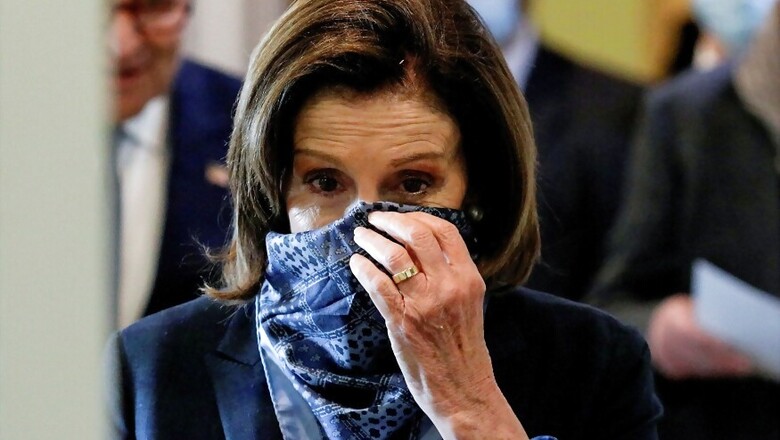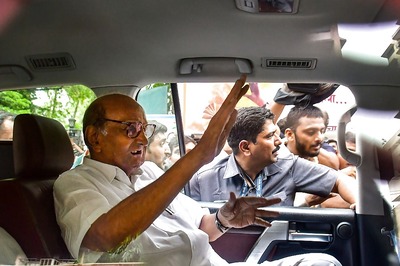
views
Washington: The US Senate convened for its first regular session in five weeks Monday in the heat of the coronavirus pandemic that has killed 68,000 Americans and left tens of millions jobless.
Lawmakers, who under new guidelines are encouraged but not required to wear face masks, are expected to address disputes over how to confront the outbreak and mitigate the devastating economic impacts.
The Senate — with 49 of its 100 members age 65 or older and therefore considered at higher risk — gavelled in for its first full session since March 25.
"Now the time has come for us to continue conducting our nation's business in ways that are only possible with senators here in the capital," Senate Majority Leader Mitch McConnell said.
"The Senate's going to be as smart and safe as we possibly can, and we are going to show up for work like the essential workers that we are."
Republican McConnell did not wear a mask inside the chamber, but many lawmakers from both parties did. In hallways outside the chamber, nearly all senators, including McConnell, were wearing masks.
Top Senate Democrat Chuck Schumer said members should prepare for "one of the strangest sessions of the US Senate in modern history" -- one where lawmakers do not shake hands or huddle with colleagues.
Democrat Dianne Feinstein, at 86 the oldest current US senator, said that while she did not feel it was appropriate yet for the Senate to hold full sessions, she was unphased about returning to work.
"I'm not worried about it. It's just a little depressing because it's so quiet," she told AFP through her mask. "Other Americans are at work," added Republican colleague Deb Fischer. "We need to be here."
The 435-member House of Representatives opted not to return this week.
Top House Republican Kevin McCarthy said he wants a "hybrid" resumption of House work, including committee hearings, as Washington and the nation debate how and when to open up.
Democratic leaders who control that chamber delayed holding full sessions, citing ongoing health safety concerns and a warning by the congressional physician that the US capital had yet to sufficiently control new coronavirus cases.
Those who do return to Capitol Hill are advised by that doctor, Brian Monahan, to practice social distancing, wear masks, limit the number of in-office staff, screen visitors, use hand sanitizer, and avoid shaking hands.
'Crawl, walk, run'
The Senate's return follows a clash of sorts between congressional leaders and President Donald Trump.
After lawmakers were told last week that Monahan's office would not be able to test every member of Congress for the virus, Trump's administration offered to conduct the rapid screening.
But in a rare joint message, Democratic House Speaker Nancy Pelosi and McConnell on Saturday rejected the offer, stating that the tests should be reserved for the public.
Democrats have complained that McConnell was resuming full sessions but not considering legislation this week aimed at addressing the pandemic.
In their first full vote in weeks, for an agency inspector general, 87 of 100 senators showed up, participating in an extended voting system that prevented many lawmakers from being on the floor at one time.
Senators will consider the nomination of a federal judge later this week.
Schumer said the Senate's current priorities should be focused on helping Americans through the coronavirus crisis, "not confirming right wing judges or protecting big businesses that threaten to put workers at serious risk," Schumer said.
Some Republicans are calling on Pelosi to bring her chamber back into session immediately.
McCarthy said he is advocating a "crawl, walk, run" approach including the expansion of testing, limited staff and extended House floor votes to accommodate social distancing.




















Comments
0 comment